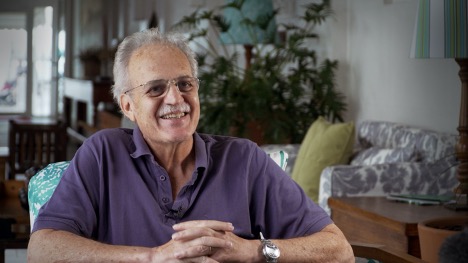Renowned climate scientist Carlos A. Nobre to deliver Earth Day lecture April 21
Climate scientist Carlos A. Nobre, who is renowned for his work on the impact of Amazon deforestation, will deliver the 2021 Earth Day Lecture on Wednesday, April 21, at 1 p.m. CT. Nobre’s talk, “The Amazon Near a Tipping Point: The urgent need of a novel standing forest bioeconomy,” is part of a joint venture by the Vanderbilt Evolutionary Studies Initiative and the Center for Latin American Studies to highlight science in Latin America. The virtual talk is free and open to the public. Registration is required.

Nobre, an Earth system scientist from Brazil, obtained a Ph.D. in meteorology from the Massachusetts Institute of Technology in 1983. His work focuses mostly on the Amazon and its impacts on the Earth’s systems. He chaired the Large-Scale Biosphere-Atmosphere Experiment in Amazonia and has been a member of the Intergovernmental Panel on Climate Change. He was national secretary for R&D policies at the Ministry of Science, Technology and Innovation of Brazil and president of Brazil’s Agency for Post-Graduate Education.
Nobre is a foreign member of the U.S. National Academy of Sciences and a member of the Brazilian Academy of Sciences and of the World Academy of Sciences. He is a senior scientist with the University of São Paulo’s Institute for Advanced Studies. Most recently, he was the recipient of the 2021 American Association for the Advancement of Science Award for Science Diplomacy.
Nobre continues research on the risks of a “savannization” tipping point in the Amazon forest driven by factors such as global warming, regional deforestation and forest fires. But he is also working to find solutions. He started the Amazon Third Way Initiative and Project Amazonia 4.0 to develop a “standing forest, flowing rivers” innovative bio-economy for the Amazon, based on adding value to the forest’s products and harnessing its immense biological and biomimetic assets.
The Vanderbilt Evolutionary Studies Initiative was established in August 2019 to unite a remarkably diverse array of scholars with broad interests and expertise in evolution-related fields. For more than 70 years, the Center for Latin American Studies has used a combination of interdisciplinary research, teaching and outreach to establish itself as a dynamic and effective center of learning, with influence stretching across the United States and abroad.
Read MyVU article here.
